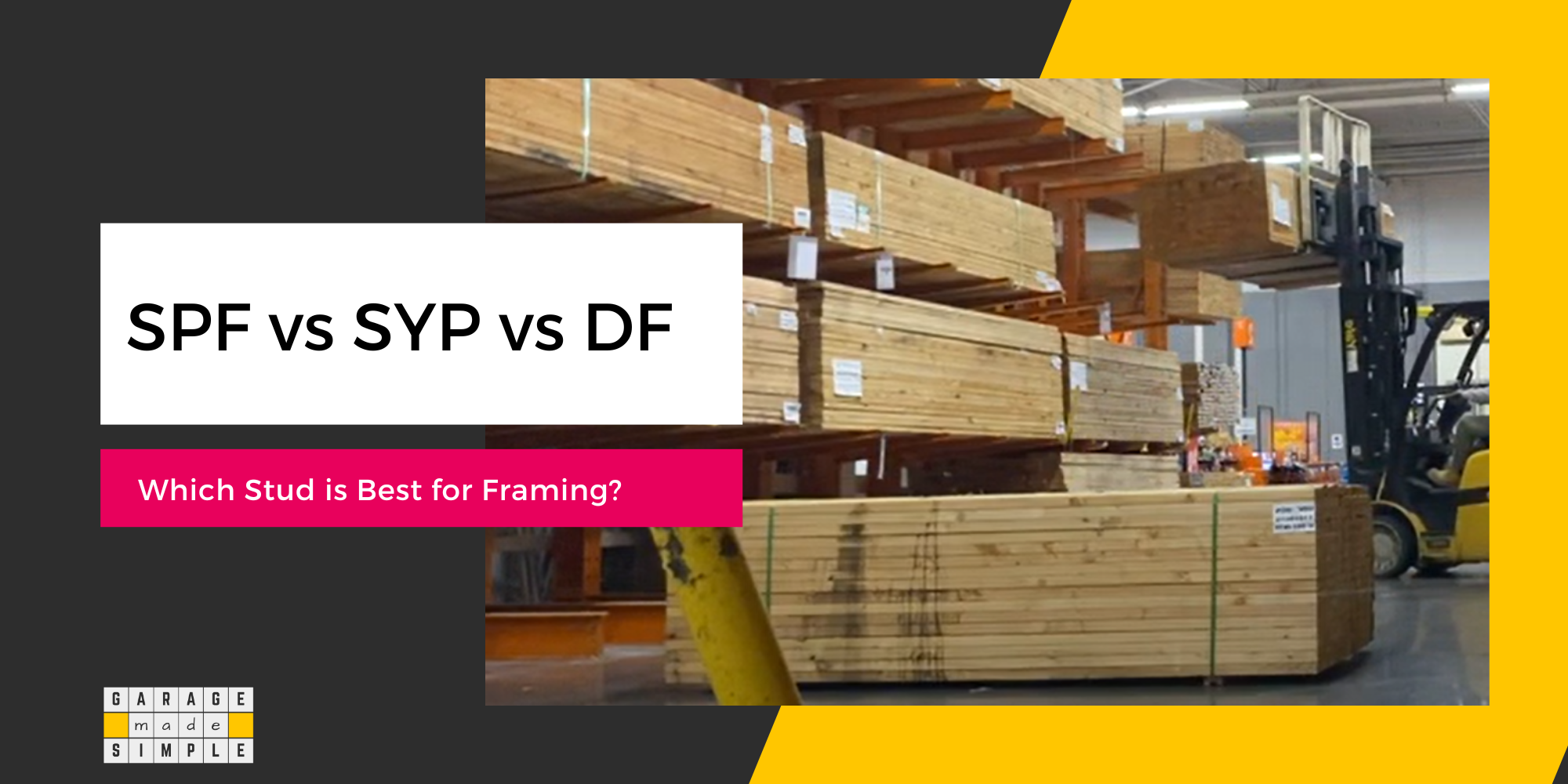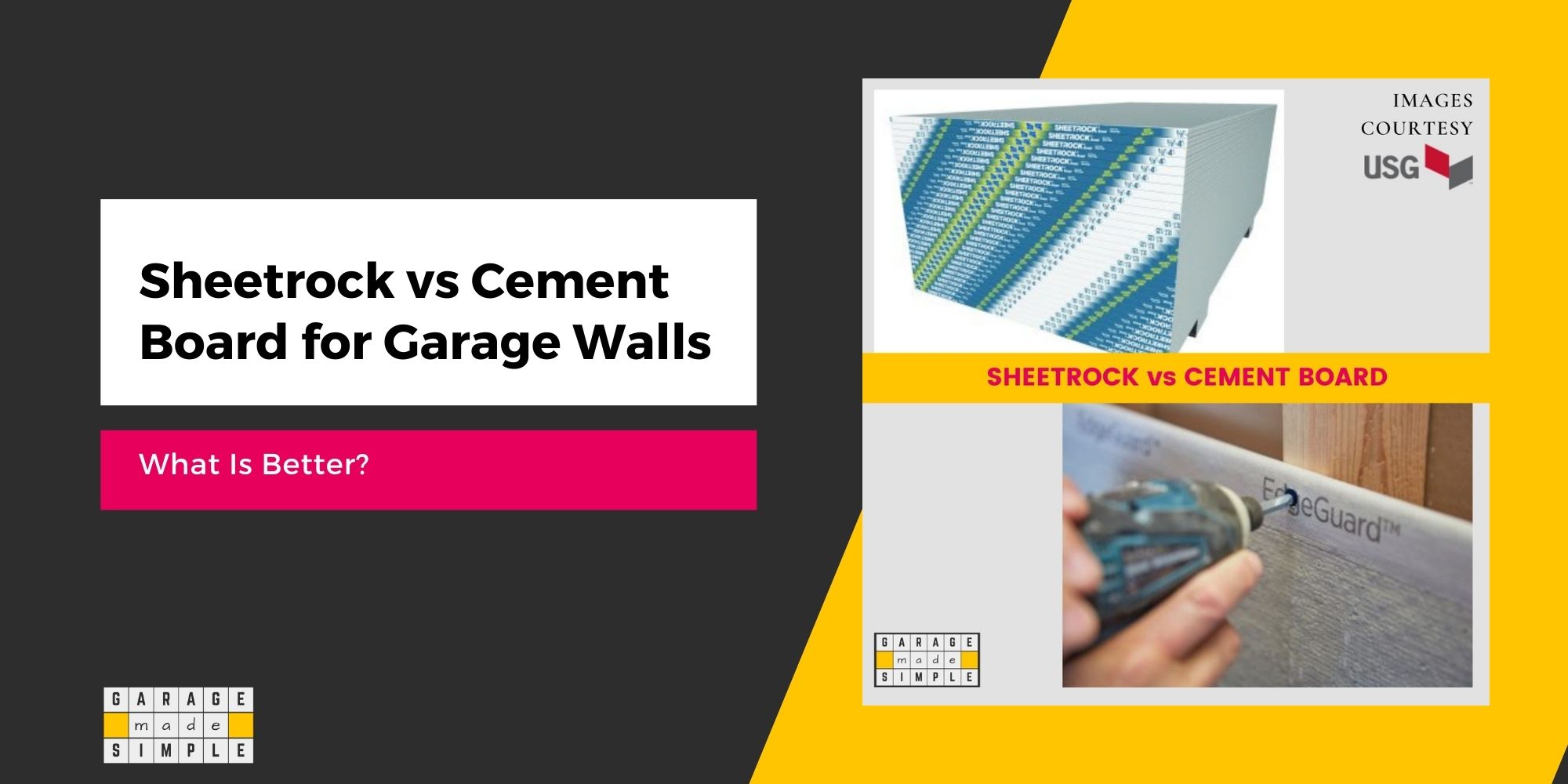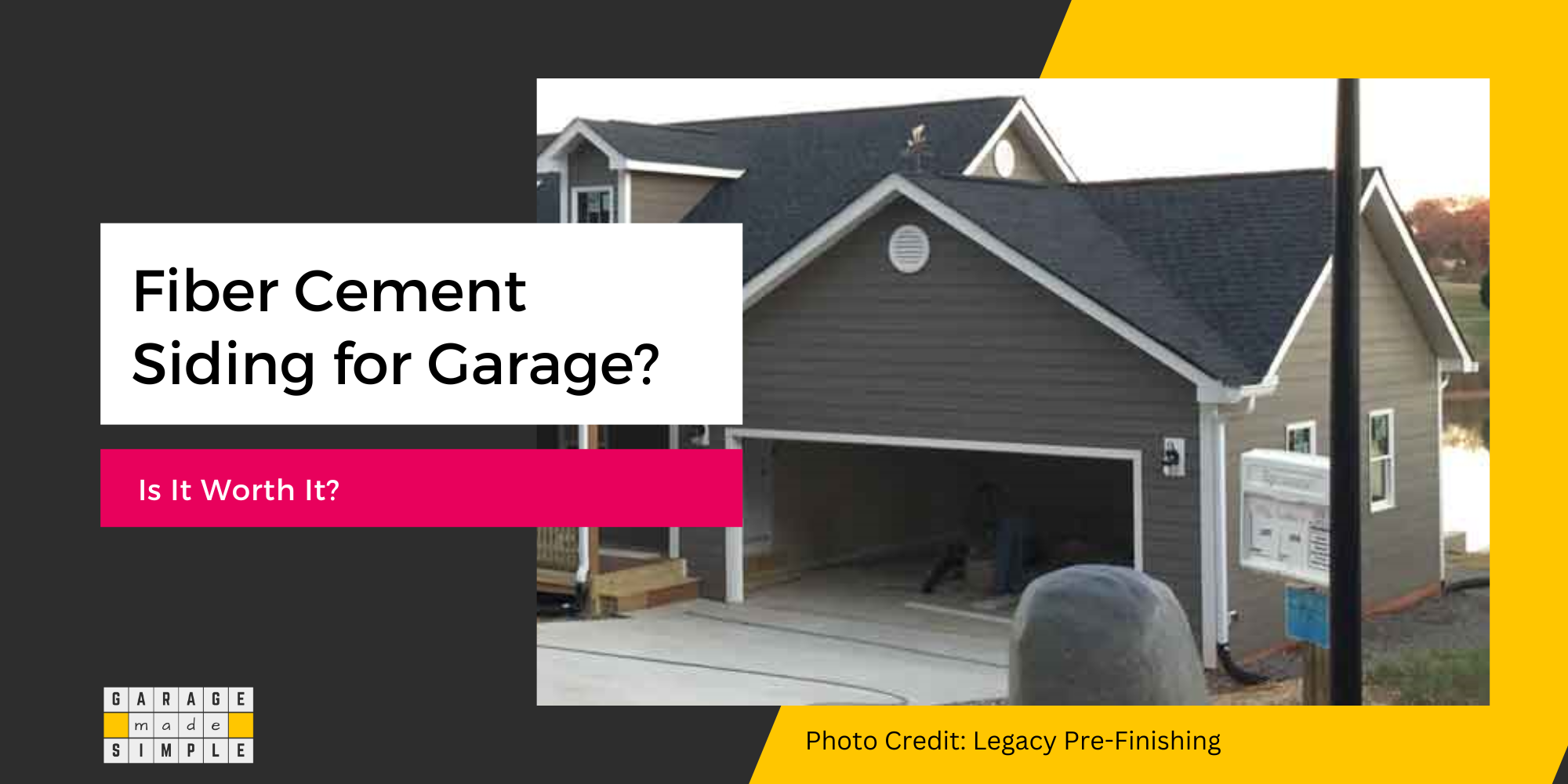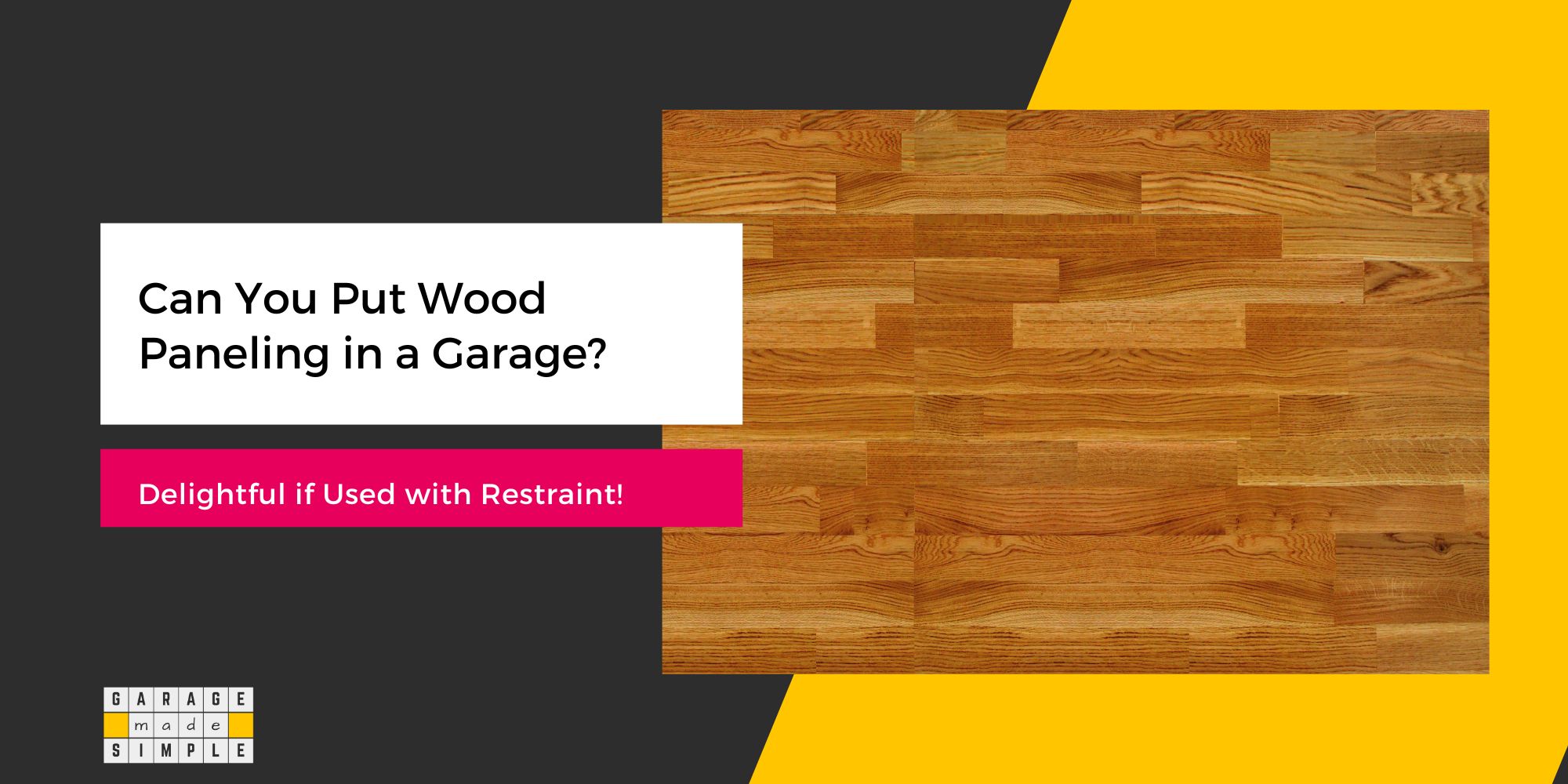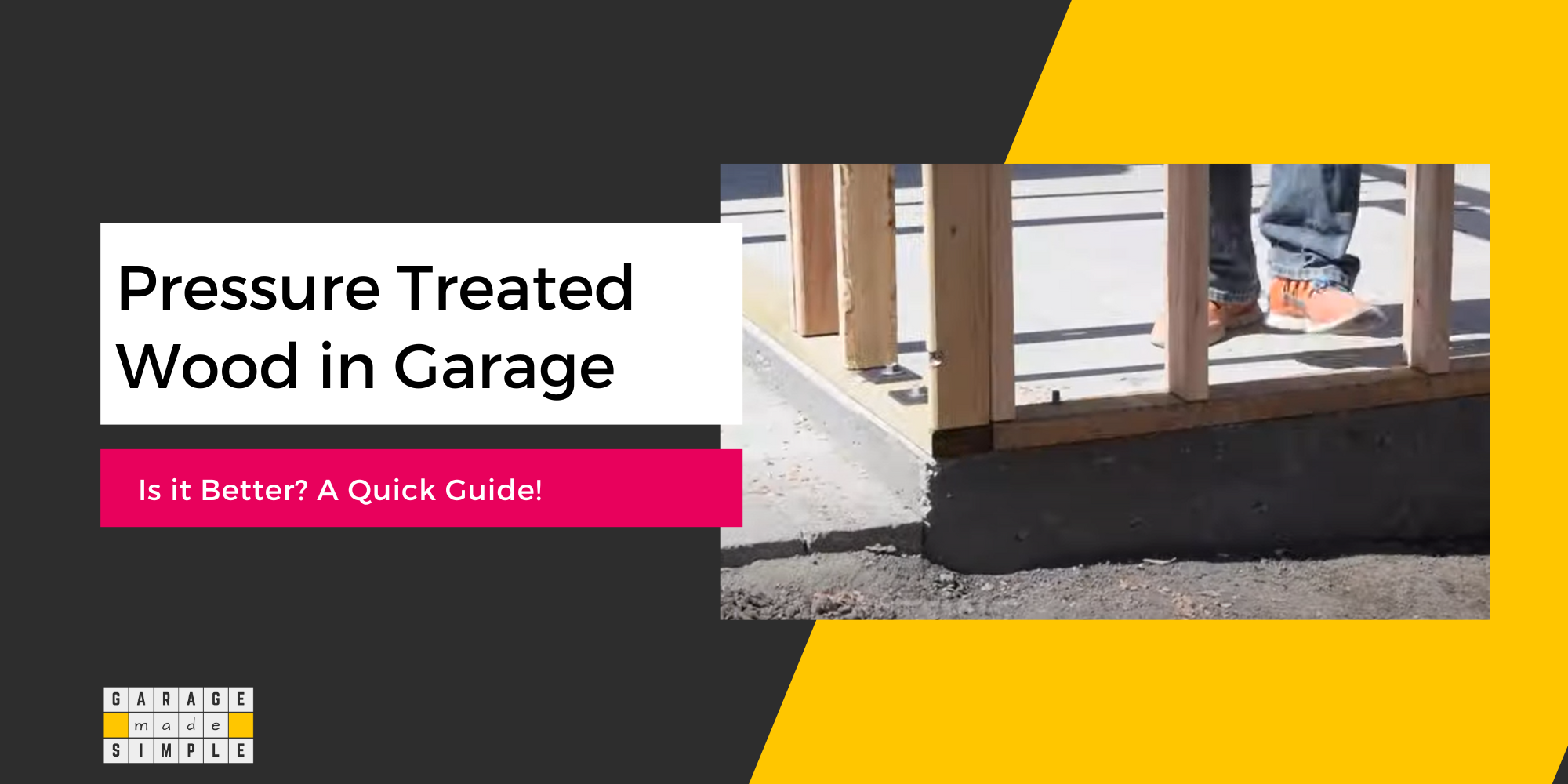Vinyl Siding for Garage: Is it a Good Choice?
As an Amazon Associate, I earn from qualifying purchases.
Is Vinyl Siding a Good Choice?
The siding of an attached garage has to be the same as that of the main house. However, you are free to choose an alternate siding for a detached garage. Vinyl, Fiber Cement, Wood, Metal, etc. are some of the options. Vinyl siding is popular, but is it really a good choice for a detached garage?
Vinyl siding is an excellent siding for a detached garage if you are on a budget. It is weather resistant, easy to install and requires little maintenance. However, it does have a “cookie cutter” look and a shorter lifespan than other siding options.
Vinyl siding is manufactured by a process called co-extrusion and consists of two layers. The top layer is weatherable & durable PVC. The bottom layer is also PVC, but a lower grade to keep costs down.
The vinyl siding panels are cut to fit the garage exterior walls. Installation is done using brackets, clips, and nails. The bottom edge of each panel overlaps the top edge of the panel below it to create a watertight seal.
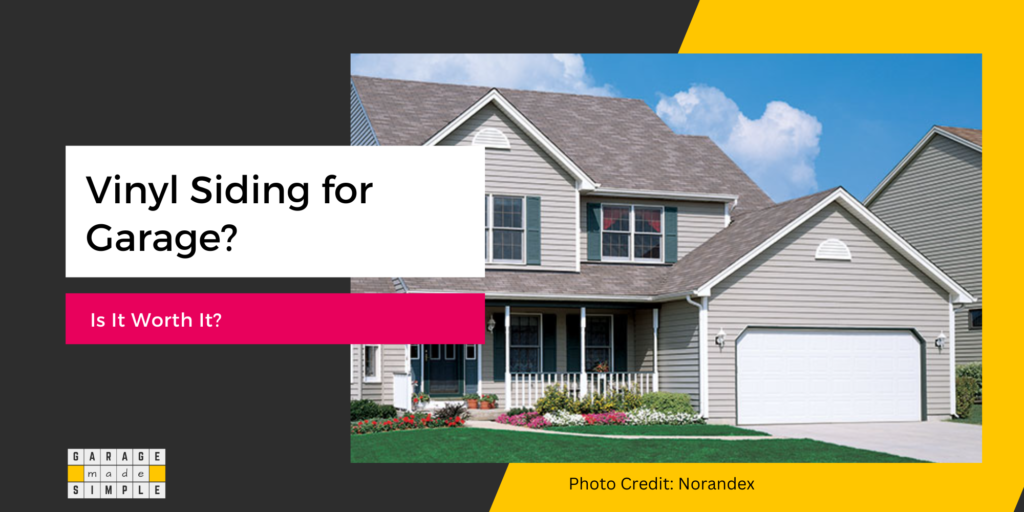
What Are the Benefits of Vinyl Siding?
There are quite a few benefits of using vinyl siding for your detached garage. Here are some that I think are really important.
Affordable
Vinyl is possibly the least expensive siding that you can buy. Vinyl is cheaper than other sidings because the availability of PVC from which it is made is very high.
The manufacturing process has been standardized and automated, making mass production possible. A combination of these factors makes PVC siding very affordable.
Unless you are looking for something fancy, vinyl sidings cost $3 – $4 per sq. ft. This quality is good enough for a detached garage.
Ease of Installation
Vinyl siding is lightweight and flexible. It comes in standard lengths and requires very few cuts. When required, it can be cut to size using a utility knife.
Being lightweight, vinyl siding can be installed by a single person. No special tools or equipment are required. You can use nails or special vinyl siding clips to secure the panels to the wall.
Install the siding panels by interlocking the top of each panel with the bottom of the panel above it. You can install vinyl siding directly on top of existing siding or on to the garage wall studs.
Vinyl siding does not require to be finished or painted. The color of the vinyl siding is an integral component of the PVC used to make the siding. The surface has a smooth finish as it is an extruded product.
The low material and installation cost makes vinyl siding a really affordable choice for a detached garage.
Weather Resistant
Vinyl siding is waterproof and will not absorb any water. Moreover, it is made from PVC which is a non-organic material. So vinyl siding will not rot, rust, decay or be eaten up by insects such as termites.
Vinyl siding can withstand the usual variations in temperatures and weather conditions. UV inhibitors incorporated during the production process prevent it from fading or discoloration in the sun. However, brighter colors, such as reds & yellows, are likely to fade over time.
The interlocking design also makes your garage wind, rain and snow proof. None of these elements can get into your garage.
Low Maintenance
Vinyl siding is quite easy to maintain as it is made from a synthetic material and is weather resistant. Additionally
- It does not require repainting as the color is an integral part of the material.
- Dust & dirt can be cleaned with a hose or pressure washer.
- Grease marks, stains, grime, and other contaminants should be cleaned with a mild detergent and a soft-bristled brush.
- Protect the siding from impact. Trim trees and branches that may come into contact with the siding, and avoid using ladders or other tools that could damage the siding.
- Small holes, dents, or scratches can be repaired using a vinyl siding repair kit. Larger areas of damage may require the replacement of individual panels or sections of siding.
What Are the Disadvantages of Vinyl Siding?
Vinyl siding does have a few disadvantages. They are not deal breakers but it is good to know them before you make a decision.
Durability
Manufacturers may claim that the lifespan of vinyl siding is 20 – 40 years. But is this the truth? You must take the claims made with a grain of salt as they usually have “not easily visible fine print of ifs & buts”.
In reality, you will most likely consider an upgrade or replacement in 10 – 15 years. The vinyl siding begins to look jaded as colors fade and the gloss disappears. The siding may also warp, develop cracks or get damaged by sharp objects.
In my opinion, considering the overall cost of installing vinyl siding on a detached garage, a lifespan of 10 – 15 years is quite acceptable.
Poor Impact Resistance
Vinyl siding has a poor impact resistance, especially if it is hit by sharp or heavy objects. It can withstand minor impacts, such as from hail or branches, without breaking. However, it is likely to get damaged if it is struck by a lawnmower.
Minor holes and cracks can be patched up. But if a vinyl siding panel suffers significant damage you will need to replace it.
This is easier said than done. You may not be able to find a panel that is an exact match of the one that needs to be replaced. Even if you do, the new panel will stand out from all the old panels. The existing panels will show their age due to some fading & gloss reduction.
Aesthetic Appeal
In recent years, vinyl siding has become more realistic in its appearance. There is a wider range of colors and styles available.
However, a vinyl siding is more likely to evoke a feeling of “cheapness”. Not surprising as it is a mass produced industrial product. Price & functionality take precedence over aesthetics & curb appeal.
You may be tempted to make your detached garage “pop out”, by using bright colors such as red or yellow. I do not recommend doing that. You will regret your decision after a few years once the colors begin to fade.
It is better to go with “commonplace & boring” colors like white, beige, tan, light grey, etc. They will stand the test of time a lot better.
Moisture Trap
A major benefit of vinyl siding is that it is resistant to moisture & water. However, this is a double edged sword, when it comes to cladding a detached garage.
Moisture can get behind the siding, accumulate and cause garage wall studs and interior walls to rot and develop mold. To prevent this you must ensure that your detached garage is well ventilated.
Bottom Line
There are 7 popular siding options for a detached garage. The bottom line is that vinyl siding may not be the best choice for your home but it is a good enough choice for a detached garage. After all most detached garages are built to serve a specific function, not to add curb appeal.
Thank you very much for reading the post. I do hope you found it informative and useful.

